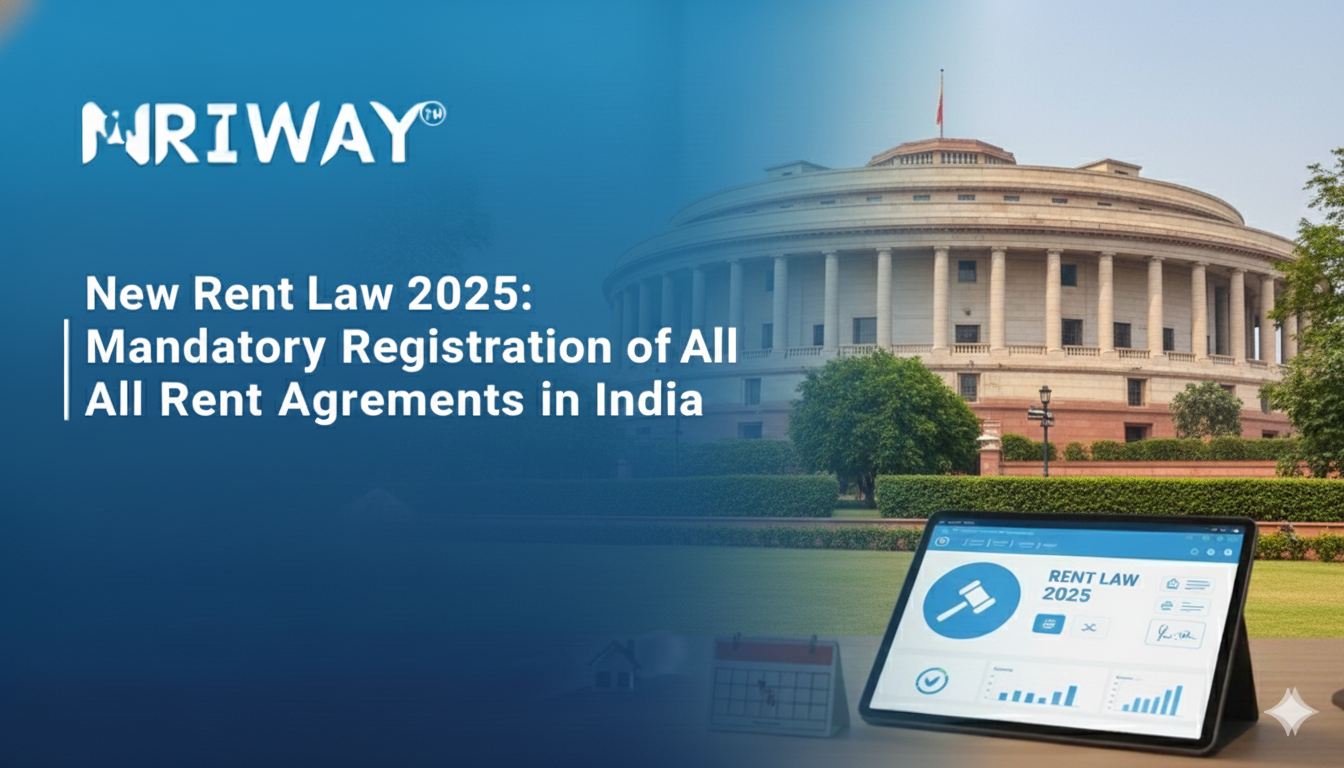New Rent Law 2025: Mandatory Registration of All Rent Agreements in India

New Rent Law 2025: Mandatory Registration of All Rent Agreements in India
The New Rent Law 2025 has brought a major change to India's rental market. Every rent agreement must now be officially registered to be considered valid. Earlier, many agreements were accepted without registration, which often led to disputes and misuse. The new law aims to make rental transactions safer and more transparent for landlords and tenants.
Why the Government Introduced the New Rent Law
For years, most rental deals in India were done informally. Verbal agreements or simple handwritten papers without legal proof were common. When conflicts happened regarding rent, deposits, or eviction, there was very little legal support for either party.
The New Rent Law 2025 fixes this problem by making registration mandatory for rent agreements of 11 months or more. If the agreement is not registered, it becomes invalid and landlords may face fines up to ₹5,000. This step is expected to reduce fraud, stop unfair practices, and help landlords enforce rental rules legally.
Mandatory Registration for Better Transparency and Legal Protection
A registered rent agreement becomes a legally binding document and protects the rights of both parties. People earlier avoided registration to save time or cost, which later caused legal trouble. Under the new law, unregistered agreements hold no legal value, and penalties apply for skipping registration. This promotes safer renting across all states.
Digital Stamping to Prevent Fraud and Ensure Authenticity
Digital stamping is now compulsory for verifying rent agreements. It can be done online or at the Sub-Registrar office. Digital stamping prevents fake agreements, duplicate copies, and altered documents. It also reduces paperwork and helps verify the document at any time.
Key Terms Required in Every Rent Agreement
Mandatory Clauses to Avoid Confusion
Under the New Rent Law 2025, every registered agreement must clearly include:
- Monthly rent
- Security deposit amount
- Duration of tenancy
- Notice period required for vacating
Clear documentation prevents misunderstandings and makes dispute resolution faster.
Security Deposit Limit for Tenants’ Protection
The new law limits the security deposit to a maximum of two months’ rent. Earlier, many landlords demanded deposits equal to six months or even a year, which was a financial burden on tenants. The new rule makes renting more affordable and tenant friendly.
Limit on Rent Hikes to Avoid Overcharging
Under the law:
- Rent can be increased only once a year
- A 90-day written notice is compulsory
- The rent increase percentage must remain within the agreed limit, usually 5 to 10 percent
This protects tenants from sudden or unreasonable rent hikes and helps them plan their finances.
Rent Tribunals for Faster Dispute Resolution
The New Rent Law 2025 introduces Rent Tribunals for rental-related conflicts. These tribunals aim to resolve cases within 60 days, which is much faster than traditional court cases. This ensures quick and fair decisions for both landlords and tenants.
How to Register a Rent Agreement Under the New Law
Step-by-Step Registration Process
- Collect ID proof, address proof, property documents, and draft agreement
- Draft the agreement clearly with all clauses
- Complete digital stamping online or at the Sub-Registrar office
- Register the agreement online or in person
- Both parties and two witnesses must sign the document
After the registration fee is paid and signatures are done, the agreement becomes legally valid.
Benefits of Rent Agreement Registration
A registered rent agreement:
- Protects both tenants and landlords legally
- Prevents fraud and document misuse
- Stops unfair rent hikes and illegal evictions
- Gives landlords legal support if tenants default on payments or violate terms
Digital stamping and registration create a safer and more trustworthy rental system across India.
Conclusion
The New Rent Law 2025 marks an important improvement in India’s rental sector. With mandatory registration, capped deposits, regulated rent hikes, and Rent Tribunals, the renting experience becomes safer for tenants and more structured for landlords. This law is expected to make renting a home in India easier, more secure, and more reliable for everyone.



